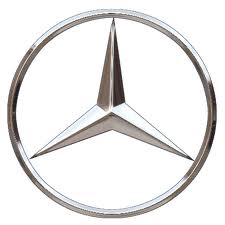E 63 AMG Sedan (212.077) V8-6.3L (156.985) (2010)
/v8-6.3l_(156.985)/Page-2511003.png)
Additional function requirements, active light distribution
^
Vehicle moving forward
Function sequence for active light distribution
The active light distribution is comprised of the following subfunctions:
^
Motorway lights function sequence
^
Extended fog light function sequence
^
Function sequence, adaptive high beams (with code (608) Adaptive Highbeam Assist)
Additional function requirements, motorway lights
^
Function "Intell. Light System:" activated in the "Lights" menu in the instrument cluster
^
Extended fog light function inactive
^
Radius of curve r >= 800 m
Motorway lights function sequence
The motorway lights enable optimum illumination of the roadway at high vehicle speeds.
This is achieved by increasing the light output and vertically deflecting the low beam cone.
The motorway lights function is deactivated when it is raining. Rain detection takes place by evaluating the windshield wiper signal (windshield wiper
not in park position). If the windshield wiper is in the park position for less than t = 600 ms, this is evaluated as continuous wiping. Rain is detected if the
continuous wipe function is active for t > 2 min.
The motorway lights function depends on the following set variables:
-
Steering wheel angle
-
Vehicle speed
-
Yaw response of the vehicle
The release of the motorway lights function takes place manually via the operation level in the instrument cluster. The instrument cluster transmits the
corresponding status via chassis CAN to the front SAM control unit.
The steering wheel angle recorded by the steering angle sensor is transmitted by the steering column tube module control unit, the vehicle movement
information is transmitted by the Electronic Stability Program control unit, and the vehicle speed is transmitted by the instrument cluster via chassis
CAN, front SAM control unit, and front end CAN to the xenon light control units.
The front SAM control unit receives all relevant information and transmits it to the xenon light control units via the front end CAN. Starting at a vehicle
speed of v = 70 km/h, the light output of the left xenon bulb with integrated ignition module (E1e10) and the right xenon bulb with integrated ignition
module (E2e10) is increased linearly up to P = 38 W by the corresponding xenon light control unit.
The relevant light distribution actuator motors are actuated additionally in order to open up part of the covered low beam cones of the xenon bulbs, thus
increasing the range of the low beams, under the following conditions:
-
v > 110 km/h for a distance of more than s = 1 km or
-
v > 130 km/h
If the vehicle speed drops down to below v = 80 km/h, the "motorway lights" function is disabled.
Additional function requirements, extended fog light function
^
Function "Intell. Light System:" activated in the "Lights" menu in the instrument cluster
^
Rear fog lights actuation active
Function sequence for extended fog light function (for right-hand traffic)
The extended fog light function is enabled manually via the operation level in the instrument cluster. The instrument cluster transmits the corresponding
status via chassis CAN to the front SAM control unit.
At a vehicle speed of less than v = 70 km/h the left xenon light control unit actuates the left light distribution actuator motor and the left active curve
lights actuator motor. The headlamp unit of the left front lamp unit is swiveled outwards by Alpha = 8° and the part of the light-dark boundary that slopes
to the right is covered. This in turn serves to reduce internal dazzling and the side illumination of the travel lane is improved.
If the "extended fog light function" is active, the "dynamic curve illumination" function is deactivated.
If the high beams function is requested during active "extended fog lights", the position of the headlamp unit is retained.
The left daytime running lights headlamp (E1/3) and the right daytime running lights headlamp (E2/3) are switched off due to possible internal dazzling.
The extended fog light function is deactivated under the following conditions:
-
Failure of a lamp unit (low beam)
-
Malfunction in left light distribution actuator motor or left active curve lights actuator motor
